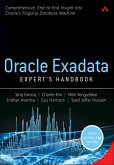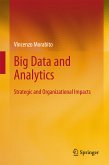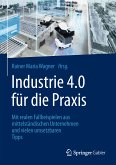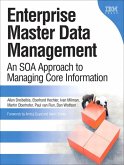To manage projects, you must not only control schedules and costs: you must also manage growing operational uncertainty. Today's powerful analytics tools and methods can help you do all of this far more successfully. In Project Management Analytics, Harjit Singh shows how to bring greater evidence-based clarity and rationality to all your key decisions throughout the full project lifecycle.
Singh identifies the components and characteristics of a good project decision and shows how to improve decisions by using predictive, prescriptive, statistical, and other methods. You'll learn how to mitigate risks by identifying meaningful historical patterns and trends; optimize allocation and use of scarce resources within project constraints; automate data-driven decision-making processes based on huge data sets; and effectively handle multiple interrelated decision criteria.
Singh also helps you integrate analytics into the project management methods you already use, combining today's best analytical techniques with proven approaches such as PMI PMBOK® and Lean Six Sigma.
Project managers can no longer rely on vague impressions or seat-of-the-pants intuition. Fortunately, you don't have to. With Project Management Analytics, you can use facts, evidence, and knowledge-and get far better results.
Achieve efficient, reliable, consistent, and fact-based project decision-making Systematically bring data and objective analysis to key project decisions
Avoid "garbage in, garbage out" Properly collect, store, analyze, and interpret your project-related data
Optimize multi-criteria decisions in large group environments Use the Analytic Hierarchy Process (AHP) to improve complex real-world decisions
Streamline projects the way you streamline other business processes Leverage data-driven Lean Six Sigma to manage projects more effectively
Singh identifies the components and characteristics of a good project decision and shows how to improve decisions by using predictive, prescriptive, statistical, and other methods. You'll learn how to mitigate risks by identifying meaningful historical patterns and trends; optimize allocation and use of scarce resources within project constraints; automate data-driven decision-making processes based on huge data sets; and effectively handle multiple interrelated decision criteria.
Singh also helps you integrate analytics into the project management methods you already use, combining today's best analytical techniques with proven approaches such as PMI PMBOK® and Lean Six Sigma.
Project managers can no longer rely on vague impressions or seat-of-the-pants intuition. Fortunately, you don't have to. With Project Management Analytics, you can use facts, evidence, and knowledge-and get far better results.
Achieve efficient, reliable, consistent, and fact-based project decision-making Systematically bring data and objective analysis to key project decisions
Avoid "garbage in, garbage out" Properly collect, store, analyze, and interpret your project-related data
Optimize multi-criteria decisions in large group environments Use the Analytic Hierarchy Process (AHP) to improve complex real-world decisions
Streamline projects the way you streamline other business processes Leverage data-driven Lean Six Sigma to manage projects more effectively
Dieser Download kann aus rechtlichen Gründen nur mit Rechnungsadresse in A, B, BG, CY, CZ, D, DK, EW, E, FIN, F, GR, HR, H, IRL, I, LT, L, LR, M, NL, PL, P, R, S, SLO, SK ausgeliefert werden.









